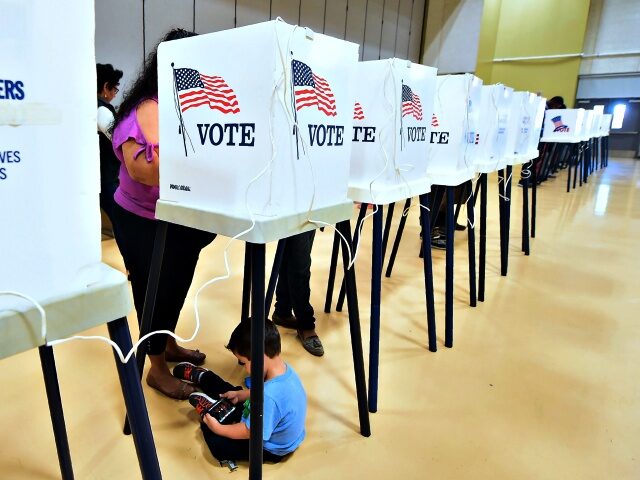The Biden administration ordered a ban on 2024 election betting markets, which often show former President Donald Trump winning in November and President Joe Biden remaining his party’s nominee.
Betting markets often provide different insights than election polling that established media outlets perform and are often useful to academics and journalists.
The Commodity Futures Trading Commission proposed a rule on May 10 to permanently ban betting on election commercial prediction markets in the United States, the New York Times’ Jeff Sommer recently reported, even as sports gambling became largely deregulated, soaring in popularity:
Rostin Behnam, the chairman of the C.F.T.C., said in an interview on Wednesday that he was sympathetic to the idea that the markets have social utility, especially in an election year.
But, he said, it’s urgent to rein in the markets now because “there has been an exponential growth in the contracts that are, or want to be, listed” on commercial exchanges. If they are left unchecked, he said, the commission could find itself in the position of needing to investigate allegations of election fraud that could alter the prices of election prediction contracts. Big money is in play in U.S. elections, he said, and “election integrity and the democratic process” need to be protected.
The proposed rule would also prohibit placing wagers on prediction markets on less weighty subjects than national elections. Prohibited areas include the Oscars and other awards, sports and sports-connected events and unspecified subjects broadly classified as “gaming” — a word that I usually translate as gambling but that the commission has been using more broadly.
Sites that offer election markets are Kalshi, Polymarket, and PredictIt.
PredictIt is associated with Victoria University of Wellington in New Zealand and is run by an American political consulting, compliance, data, and software company named Aristotle, the Times reported. The Commodity Futures Trading Commission tried to shutter the site. A court injunction allowed it to operate.
Polymarket is an onshore site. “[R]egulated U.S. markets have had an excellent forecasting record, numerous academic studies have shown,” the Times reported.
Kalshi, a commercial U.S. financial exchange, is also fighting to operate political markets, though it does not offer election marks because the Commodity Futures Trading Commission denied one congressional election application in September.
The Commodity Futures Trading Commission’s goal is to establish the rule before 2025.
Behnam claimed protecting democracy is a priority. “My goal is to raise the bar for regulation in the United States, not lower it,” he told the Times.
Wendell Husebo is a political reporter with Breitbart News and a former GOP War Room Analyst. He is the author of Politics of Slave Morality. Follow Wendell on “X” @WendellHusebø or on Truth Social @WendellHusebo.

COMMENTS
Please let us know if you're having issues with commenting.